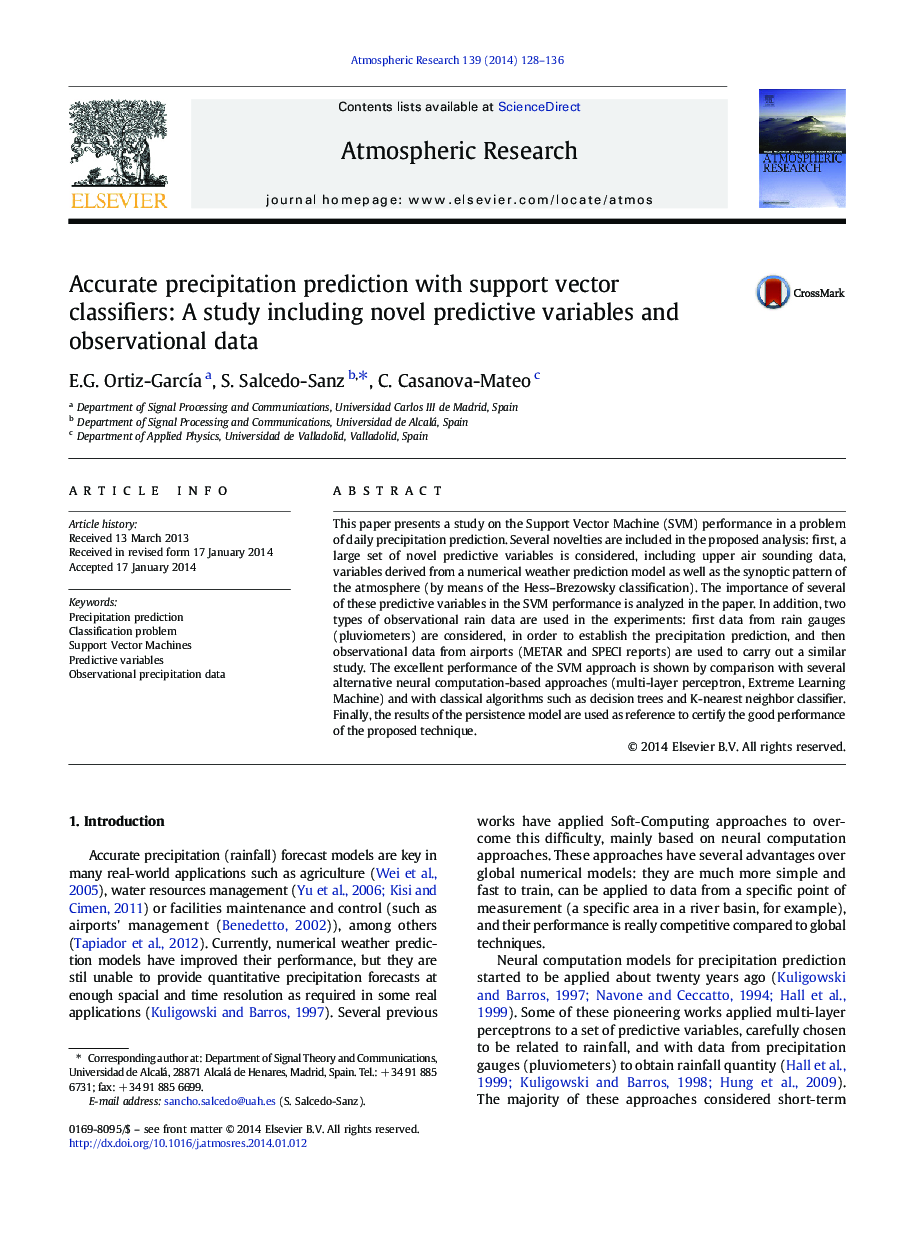| Article ID | Journal | Published Year | Pages | File Type |
|---|---|---|---|---|
| 4449961 | Atmospheric Research | 2014 | 9 Pages |
•This paper presents a study on the performance of SVM on precipitation prediction.•Precipitation prediction is formulated as a classification problem in this work.•Novel meteorological predictive variables and observational data from airports are used.•We show that the SVM outperforms other classification techniques in this problem.
This paper presents a study on the Support Vector Machine (SVM) performance in a problem of daily precipitation prediction. Several novelties are included in the proposed analysis: first, a large set of novel predictive variables is considered, including upper air sounding data, variables derived from a numerical weather prediction model as well as the synoptic pattern of the atmosphere (by means of the Hess–Brezowsky classification). The importance of several of these predictive variables in the SVM performance is analyzed in the paper. In addition, two types of observational rain data are used in the experiments: first data from rain gauges (pluviometers) are considered, in order to establish the precipitation prediction, and then observational data from airports (METAR and SPECI reports) are used to carry out a similar study. The excellent performance of the SVM approach is shown by comparison with several alternative neural computation-based approaches (multi-layer perceptron, Extreme Learning Machine) and with classical algorithms such as decision trees and K-nearest neighbor classifier. Finally, the results of the persistence model are used as reference to certify the good performance of the proposed technique.
